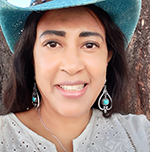Political Divisions Emerge in Jewish Community
By Barrett Holman Leak

SAN DIEGO — Genesis begins with God creating the universe as a home for humankind. Exodus ends with human beings, the Israelites, creating the Tabernacle as a home for God. We are called to be cohesive, to be a kehillah. a community – for our survival and our ability to thrive. The way we will build this community is through Shabbat.
Weekly Shabbat – the preparation for it, the communicable davening at the same time and the simultaneous rest from the work of the week – creates strong community within us. Keep Shabbat and carry the presence of God with you in the tabernacle of your heart. Remember that whether you view yourself as a Jewish American or an Israeli American, we are all the same people who have been created by and called to relationship with the same deity. We are all called to keep Shabbat and we cannot do that without keeping kehillah.
Think about Parsha Vayakhel. That’s where Moses gathers everyone and reiterates the importance of Shabbat, right? He then starts the massive project of building the Mishkan, the portable sanctuary. It’s a moment of collective action, a real demonstration of kehillah. Everyone’s contributing, giving from their hearts as Moses has asked them to do. Now, here in Parsha Pekudei (Exodus 38:21-40:38) we read about the culmination of all that effort. The Mishkan is finished, meticulously accounted for, and erected. It’s a testament to what a community can achieve when everyone gives from the heart, gives something of value.
But an examination of the community in America that represents the Jewish people is not so homogenous. There has emerged a distinct Israeli-American community. These are Jews who have immigrated from Israel, built lives here in America, but still maintain especially strong ties to Israel as a homeland. They have their own organizations, like the IAC (Israeli American Committee) and they have their own unique blend of Israeli and American culture.
But that mix also brings some interesting dynamics. While they share Jewish roots with American Jews, there can be cultural differences, different social customs and ways of practicing Judaism. Most Israeli Americans are Conservative or Orthodox, not Reform or Reconstructionist. It has primarily shown up since the October 7 Massacre through different political perspectives. Most Israeli Americans are voting for the Republican Party because of one issue – Israel’s security.
They are thought to be supporting white Christian evangelical nationalism, and with it, they indirectly support anti-Black racism and the restriction on women’s health. American Jews, a great majority of whom vote for the Democratic Party, focus more on domestic social justice, and fighting for the rights of immigrants, women’s reproductive health, the fight against racism, and equality and civil rights of African Americans along with being concerned with Israel’s security. And yes, there are Jews who are not supportive of Israel’s sovereignty and security.
The bottom line, however, is that in the United States of America, the Israeli American community is comprised of Jewish people and thus is part of the Jewish Diaspora in America. It is one ethnic and religious group that must find a mutuality and a balance even and especially in the diaspora, so we can act together, in kehillah.
Focus on core values is needed for kehillah. This is where the whole accounting in the Tabernacle/Mishkan story becomes so relevant. Outside of your political affiliation or choice, each of us in the tribe has something valuable to contribute to the collective Tabernacle we carry as the people of God. We ARE being watched as one community in America. Like the Israelites after the Golden Calf, we need to find ways to build bridges internally in the entire Jewish community, to foster dialogue and understanding, and act as one.
We must not degrade and demean one another with our words, using social media to label and insult the Jewish Democrat or the Jewish Republican. Above all and outside political labels, we are One People and called to live out the same Jewish values. The threat should not be one another, but rather the threat of Jew-hatred.
Shabbat is meant to be a time for community, but political divides can turn it into an angry battleground. The Mishkan was built by remembering who we are, focusing on our values and taking collective action, but today, political vitriol gets in the way. The Mishkan was a “home” for God, a symbol of shared purpose, but those divisions obscure that.
With the explosion and continuing expansiveness of antisemitism in the Middle East and the United States of America, the threat is tangible in our everyday lives. From morning until night, the news and media outlets are filled with it. Know this: the internal fighting, the vitriolic language, it weakens us. But we can choose differently.
The Israelites were in a hard place, filled with fear and they let fear nearly destroy them but they chose to make a comeback and cleave together. They chose to build community. We need to remember those lessons, those values of unity and forgiveness for each other, especially now.
I gather Jewish and African American people in our local community for Shabbat meals and to fight antisemitism and racism. We are stronger together in reaching that goal than we are apart. That separation of time and space from the prior week is a sanctuary, a tabernacle, a space where God can dwell among us. We daven (Kiddush and HaMotzi), we sing zemirot, we make connection with one another. We build community לבנות קהילה (livnot kehillah).
We must remember who we are and our common values. We each contribute something valuable to our Jewish community. We may not understand or like each other’s political choices but we can daven and seek wisdom in studying Torah. We can come together in Shabbat, share a meal, and move forth together from there.
*
Barrett Holman Leak is a freelance writer based in San Diego.